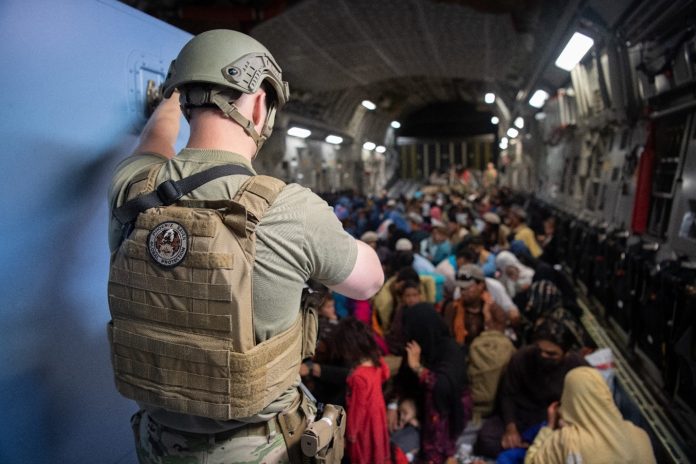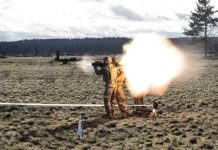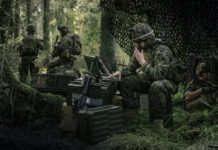ROME, N.Y. (AFRL) — Engineers from the Air Force Research Laboratory, or AFRL, refined a fielded tool called the Tactical Awareness Kit, or TAK, to aid operators in the fall 2021 Afghanistan evacuation. The kit has also been adapted to fit the missions of local, state and federal agencies in fighting wildfires and responding to natural disasters.
TAK is a technology developed by AFRL scientists and engineers that has been transitioned to and used by numerous U.S. and international warfighters, including special operations and civilian users.
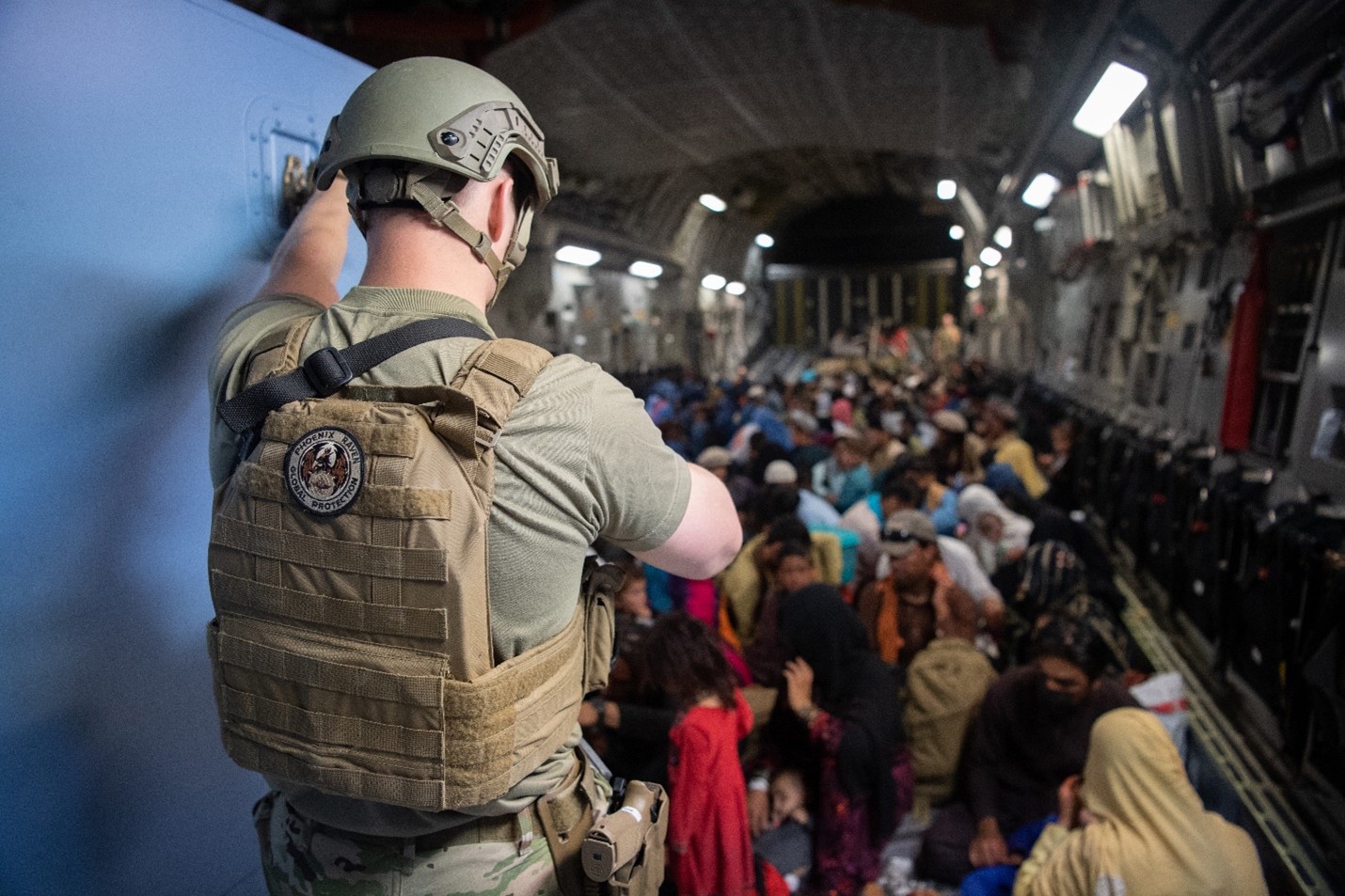
A U.S. Air Force security forces raven, assigned to the 816th Expeditionary Airlift Squadron, maintains security aboard a U.S. Air Force C-17 Globemaster III aircraft in support of the Afghanistan evacuation at Hamid Karzai International Airport, Afghanistan, Aug. 24, 2021. Support from Air Force Research Laboratory, or AFRL, systems like Tactical Awareness Kit, or TAK, helped facilitate safe extractions of families and US civilians. (U.S. Air Force photo / Master Sgt. Donald R. Allen)
As U.S. warfighters completed the main evacuation effort in Afghanistan in 2021, many Afghan allies and U.S. civilians still needed to get to safety. AFRL’s Information Systems Division, part of the lab’s Information Directorate at Rome, New York, employed the use of TAK to connect evacuees safely and securely with operators.
“AFRL’s unique system ensured that only the sender and recipient could access the needed information for the extractions,” said Capt. Landon Tomcho, an AFRL program manager. “Furthermore, the TAK system is already established in the operator community. The agile development principals integrated into the TAK ecosystem since its transition allowed the AFRL teams to apply their expert knowledge to rapidly create and employ a scenario-specific solution.”
AFRL’s Information Directorate monitored the efforts in Afghanistan and worked to understand the operating environment and situations before planning the implementation of changes needed for use. However, getting to delivery and implementation of TAK took tenacity, development, and dozens of phone calls, said Tomcho. These efforts resulted in AFRL connecting with the proper entities to put the TAK secure communications tool into the hands of the warfighters conducting the extractions to help direct individuals to safety and keep them safe.
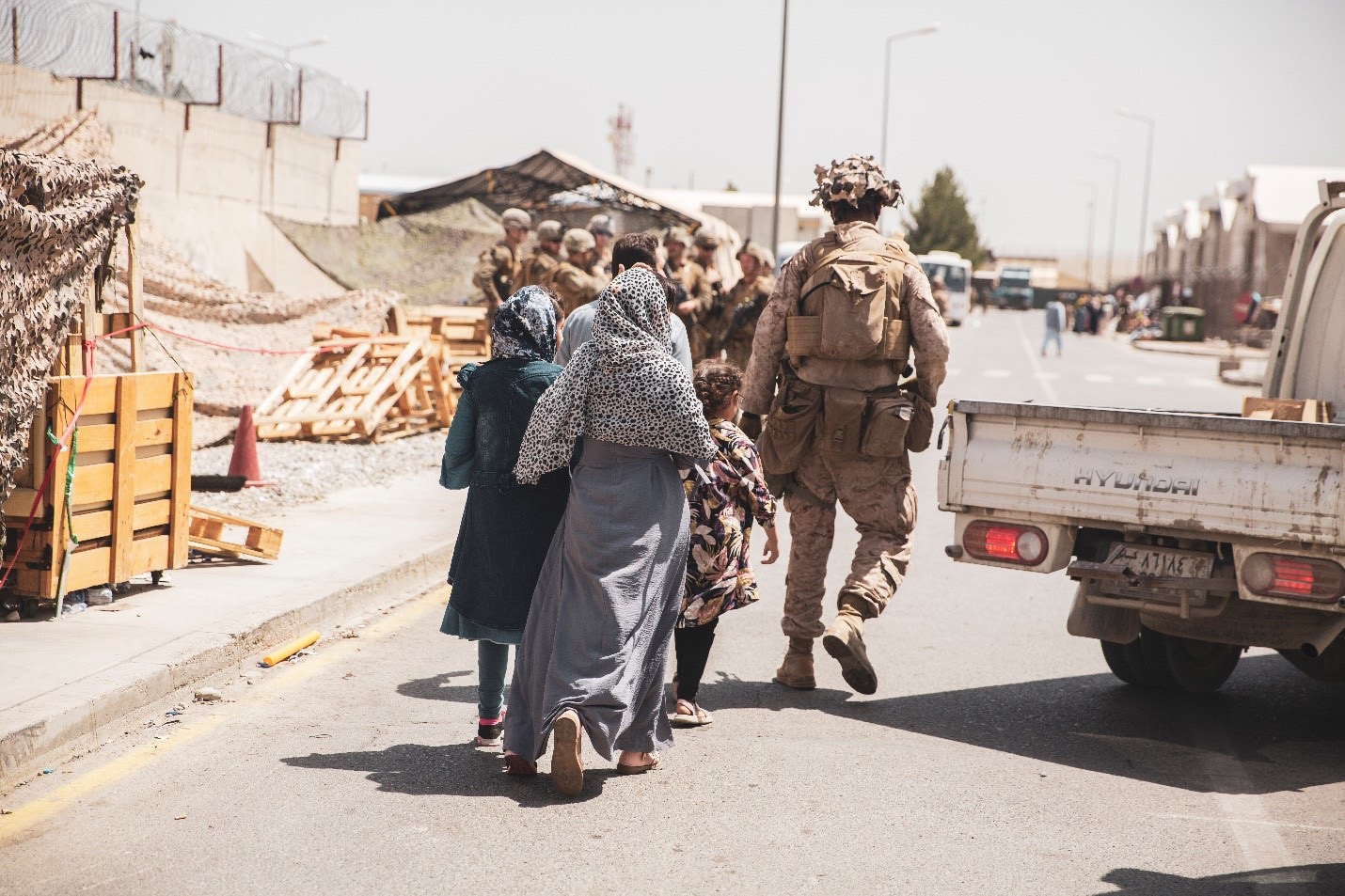
A U.S. Marine with Special Purpose Marine Air-Ground Task Force – Crisis Response – Central Command escorts a family during an evacuation at Hamid Karzai International Airport, Kabul, Afghanistan, Aug. 21, 2021. U.S. service members assisted the Department of State with a non-combatant evacuation operation in Afghanistan. Support from Air Force Research Laboratory, or AFRL, systems such as the Tactical Awareness Kit, or TAK, helped facilitate safe extractions of families and U.S. civilians.
“Having a flexible and secure means of communication would be critical to the former special operators who joined the extraction missions,” Tomcho said. “These operators had all the right tactical skills; they just needed a bit of extra technology to provide greater situational awareness.”
Ryan McLean, director of TAK product center, said his team is proud to support the Information Directorate by tackling issues such as humanitarian assistance.
“As the Allied information dominance platform, TAK delivers world-class situational awareness through a family of networked geospatial products,” McLean said. “Capt. Tomcho’s successful efforts show how the TAK products enable a rapid convergence of innovation, initiative and impact when lives are on the line.”
Additionally, instead of using an app on a dedicated device to track critical assets, the platform was re-tasked to a web portal environment, said Tomcho. The access portal allowed operators to see specific location coordinates for the extractions from any device with an internet connection. Since the platform was secure, it was the optimal solution for communication between operators and the extraction parties. It provided greater access to ensure they could receive communications and critical information in limited access environments. Because of the security, hackers are unable to decipher information.
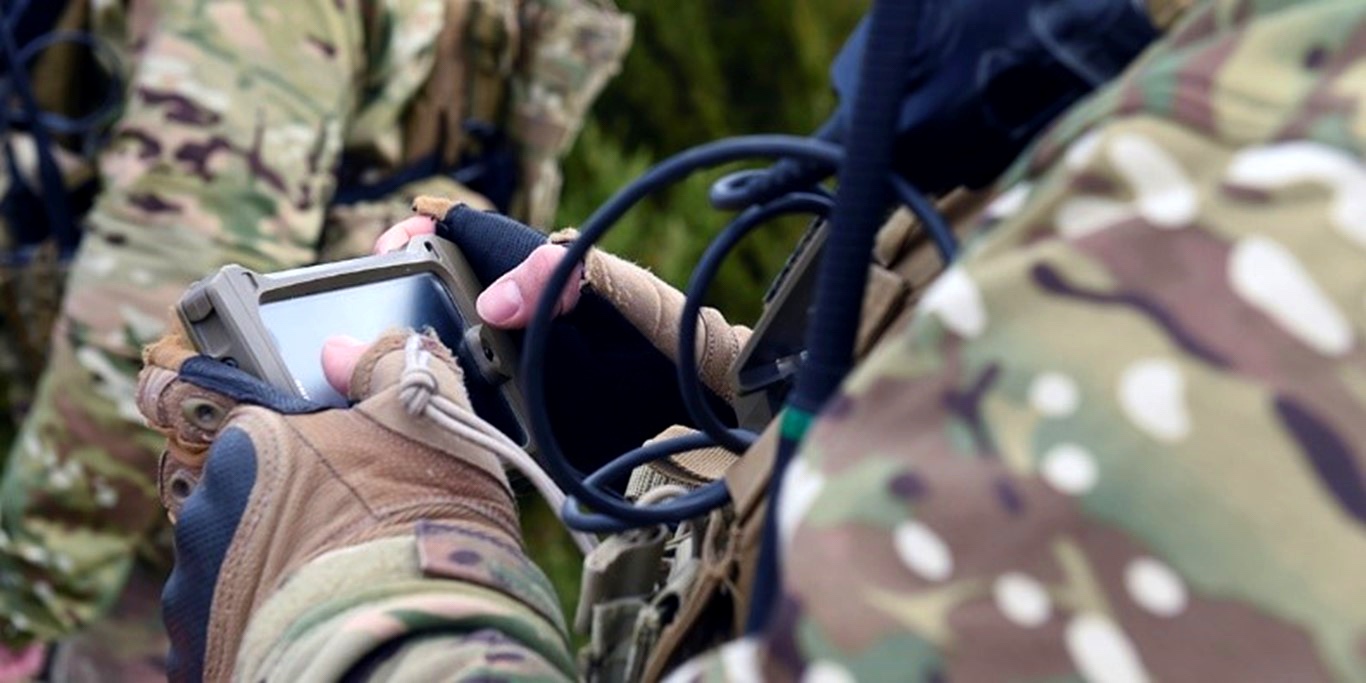
Air Force Research Laboratory, or AFRL, researchers and technical teammates re-tasked a current fielded tool called Tactical Awareness Kit, or TAK, to directly assist extraction efforts by operators in Afghanistan in the Fall of 2021 and increase the chances of success. USAF tactical air control warfighters demonstrated the capabilities of the TAK system — similar to those used during operations to evacuate U.S. citizens and allies in Afghanistan. (U.S. Air Force photo)
“In the end, AFRL researchers deployed a highly successful secure communications solution to operators that saved numerous lives,” Tomcho said.
AFRL’s application was leveraged to communicate information only the sender and recipient could securely verify, facilitating efficient and safe extractions.
By Marc Denofio, Air Force Research Laboratory Public Affairs
You can skip to the end and leave a response. Pinging is currently not allowed.

